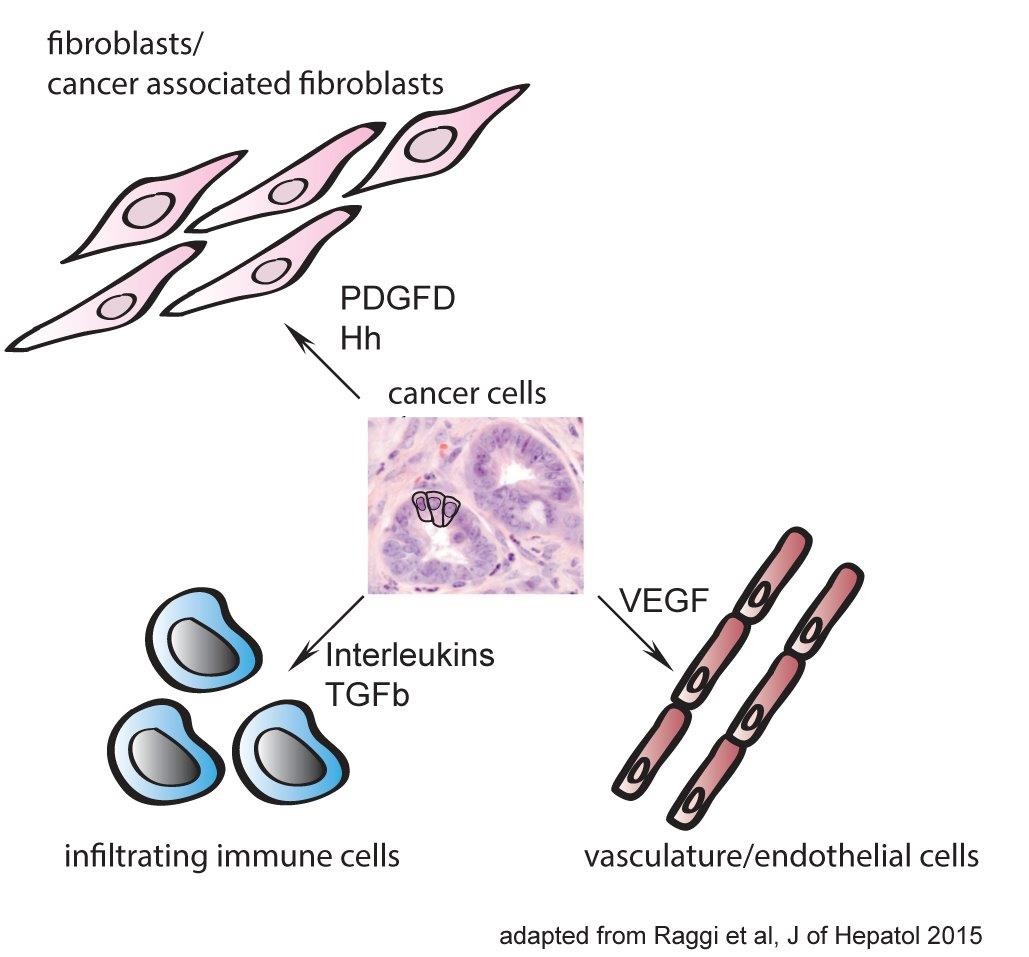Identification and functional characterization of cancer cell-derived, stroma-modulating factors in cholangiocarcinoma
Cholangiocarcinoma (CC) is a highly malignant tumor that is characterized by a dense desmoplastic stroma surrounding the cancer cells. This tumor microenvironment is a site of complex crosstalk between multiple cellular components, such as tumor cells, immune cells and cancer-associated fibroblasts.Whether the stroma supports proliferation of the cancer cells in an oncogenic fashion or actually restrains tumor growth has been a topic of extensive debate, and likely the role of the stroma in cancer initiation, progression, metastasis and therapy response is multifaceted. In CC, the stromal compartment has so far been insufficiently investigated. Thus, the overall objective of this project is to characterize the stromal pathobiology in CC and to assess the potential therapeutic benefits, but also risks, associated with targeting the tumor stroma. Specifically, we aim to functionally test designated stroma-modifying mediators such as platelet derived growth factor D (PDGFD) and sonic hedgehog (SHH), as well as to identify and characterize additional cancer cell-derived, secreted factors that promote the extensive structural remodeling of the tumor reactive microenvironment. To do so, we will integrate innovative mouse models that allow for the reversible regulation of candidate factors in established CC with data derived from microdissected human CC specimens and organoid-culture based secretome analysis.
